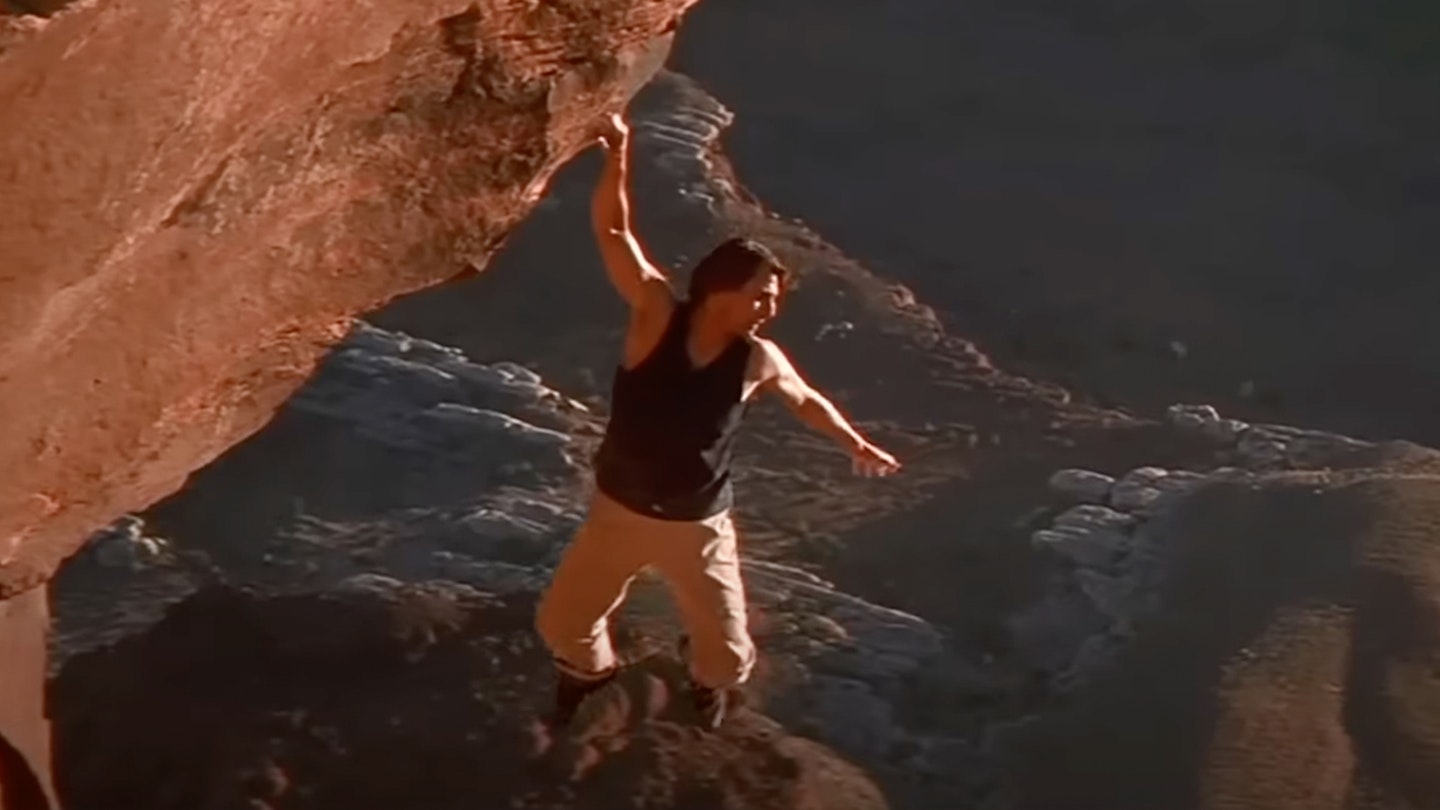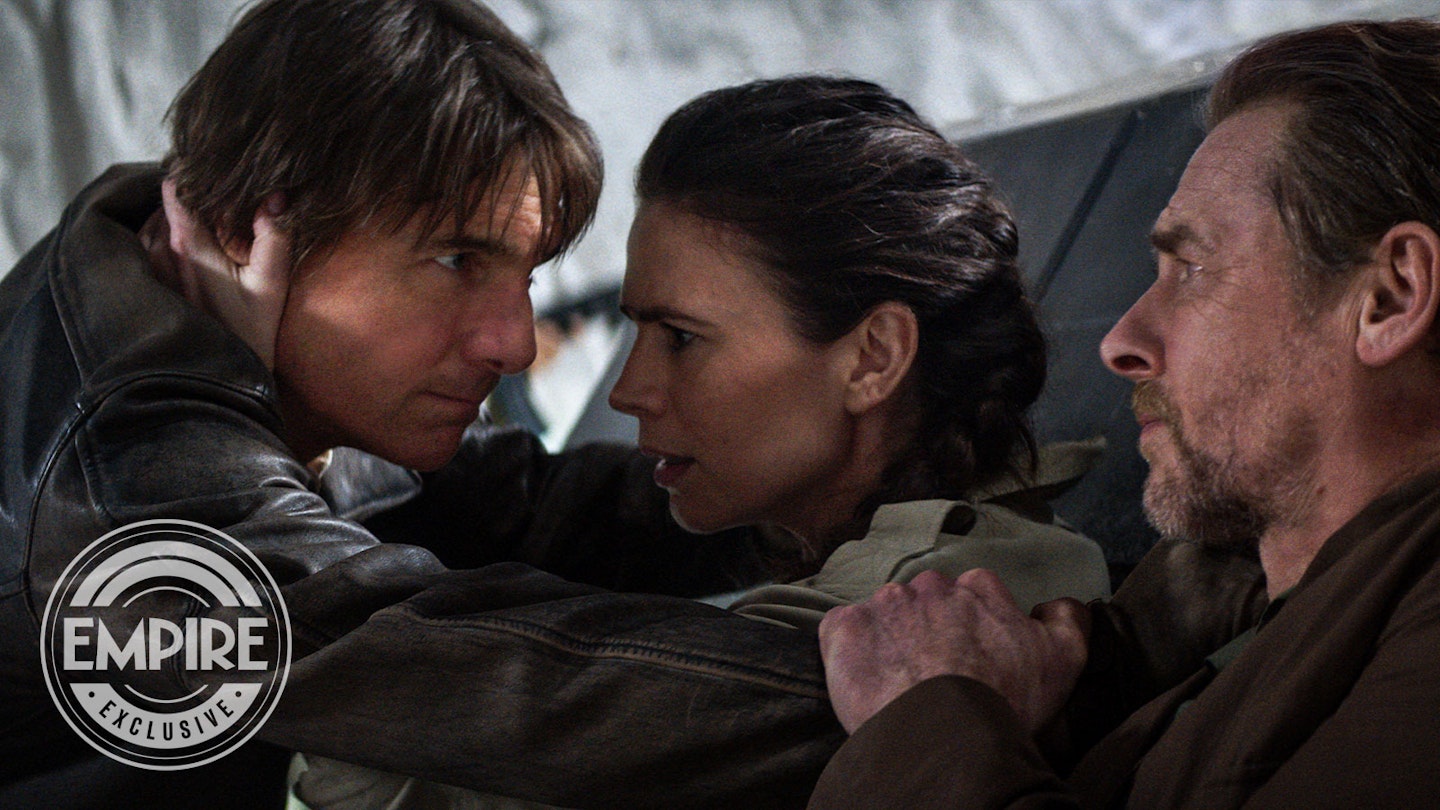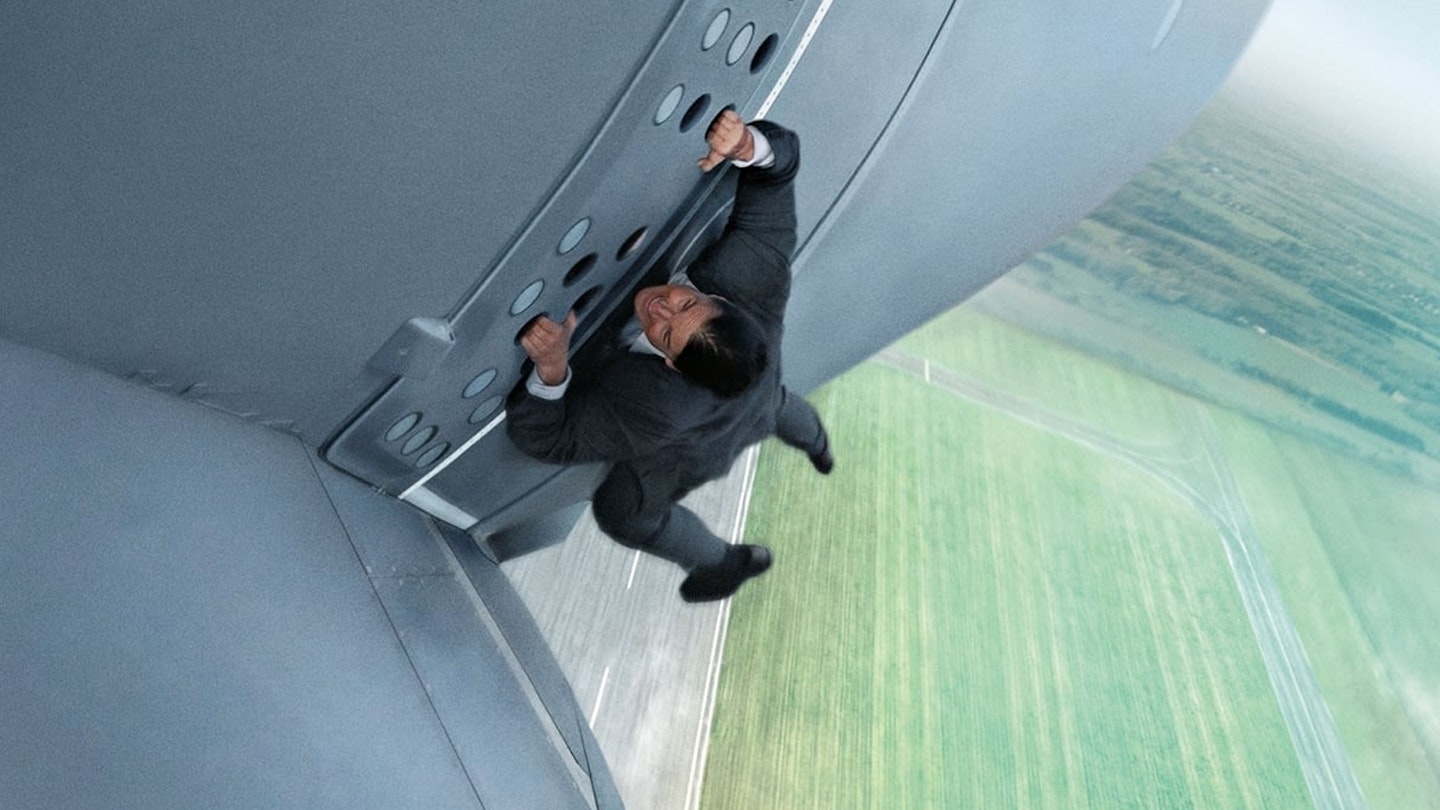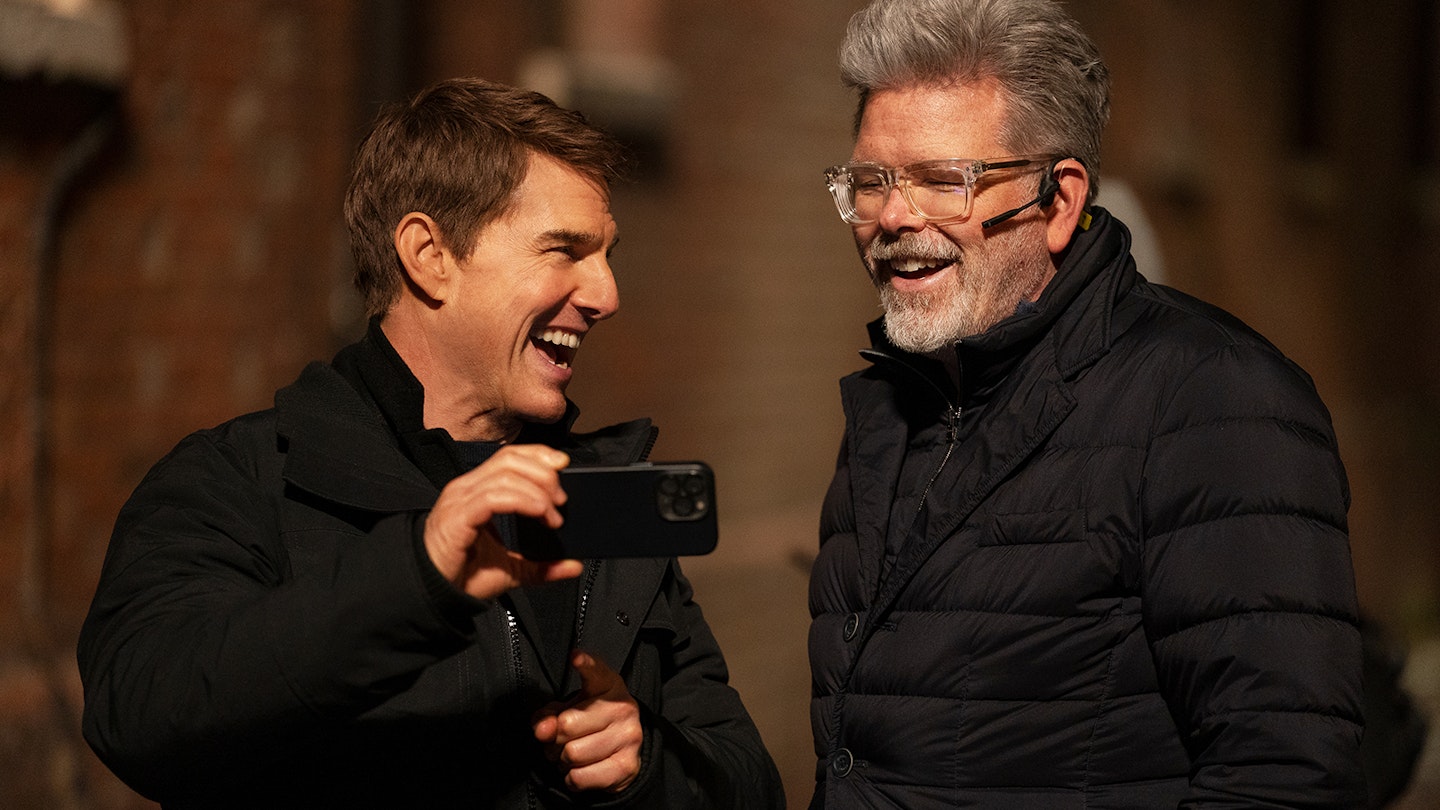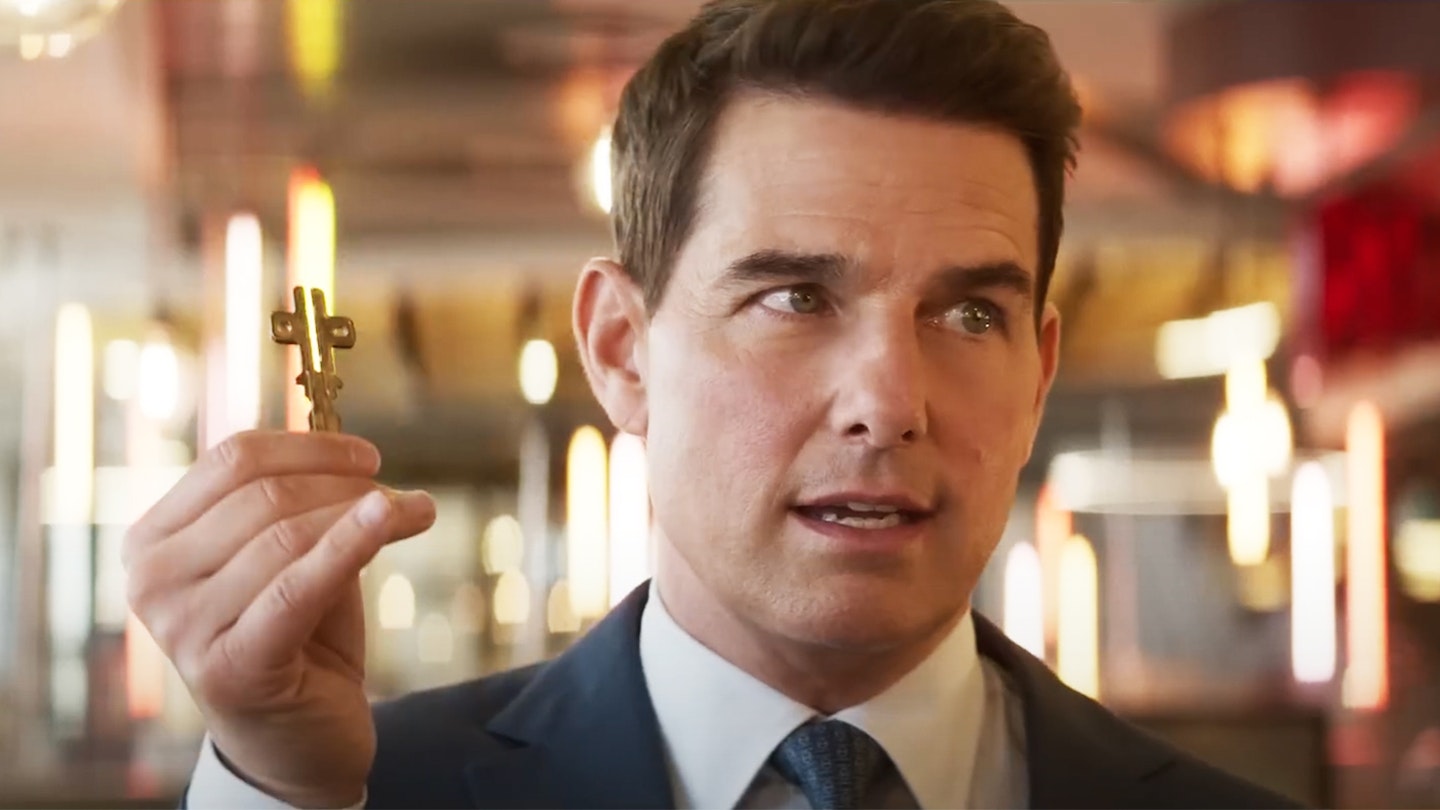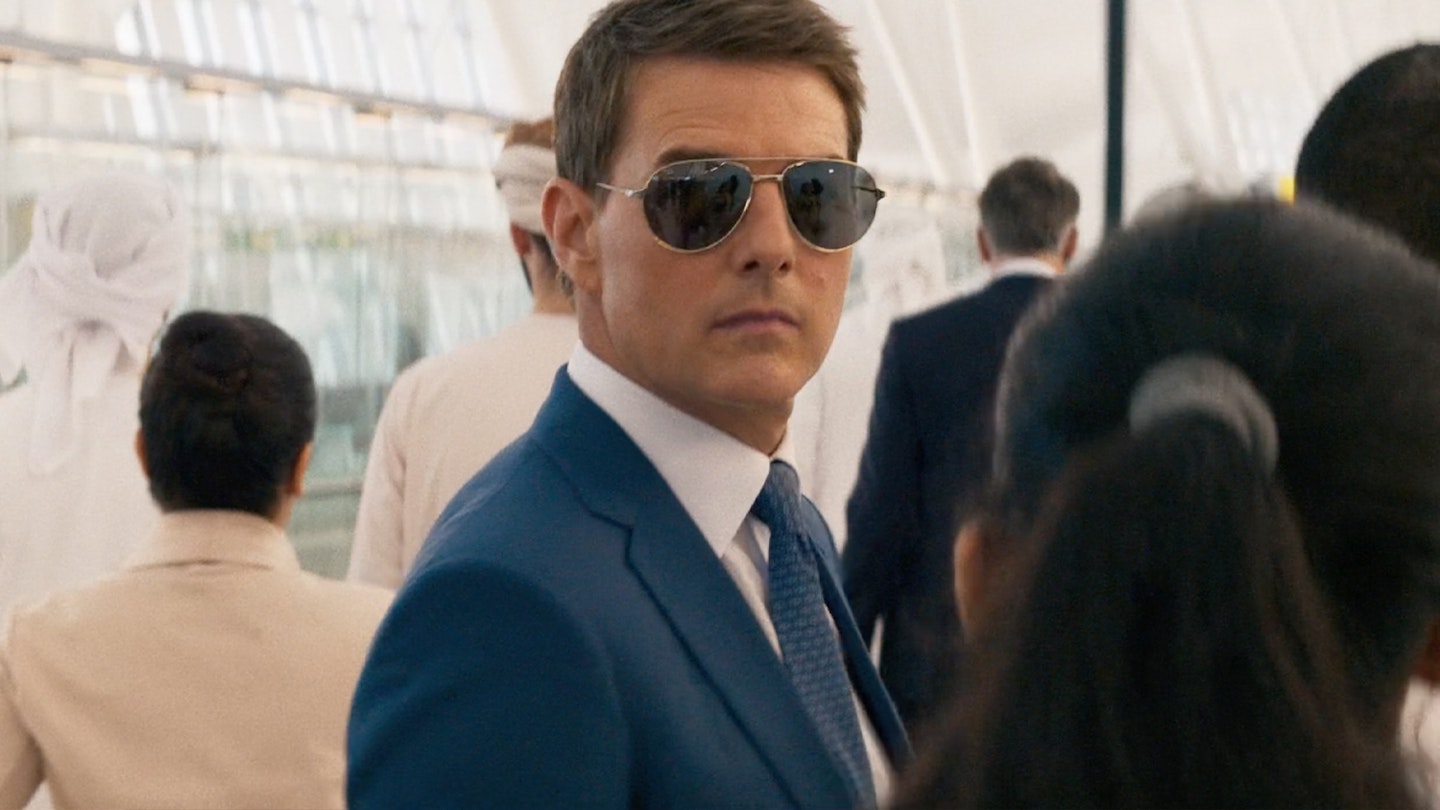“Are you sure, you’re okay to drive?” enquires Benji Dunn (still played with barely supressed gulps of panic by Simon Pegg) to his best friend and indefatigable superspy, Ethan Hunt (Tom Cruise). “A minute ago you were dead.” Naturally, a barely conscious Hunt is about to do just that: grab the wheel and commence a high-speed chase, comprised of an about-to-be-trashed Beamer and about a dozen enemy motorbikes, through the back streets of Casablanca having recently been defibrillated back into possession of a heartbeat.
This is, after all, what he does for a living. Besides which, the ridiculously sexy Ilsa Faust (Rebecca Ferguson) — of no fixed moral compass — is making off with a drive containing crucial “red box” data that could bring down The Syndicate, thus preventing war and exonerating the IMF, who have been disavowed by the American government thanks to the wheedling of the dastardly CIA (as played by Alec Baldwin).
So, what exactly is Benji’s point? Right now, care of the flat-out thrill mustered by this latest Cruise vehicle, our hearts are just about hanging on in there too. It’s what the rather splendid Rogue Nation keeps reminding us — we’re at the movies, it is supposed to be exciting. Plausibility can go dangle.
Latest director Christopher McQuarrie has decided the only way forward for the unflagging spy franchise is the direct pleasures of old-fashioned genre entertainment. Resisting the vogue for narrative sprawl, and the bad habits of former Missions, this is a thriller that aspires only to be a great thriller. Set up the dilemma, throw in the characters and watch them try to figure it out. No need for backstories, real-world relevance or, worse still, irony.
Indeed, if there is a sure signal that McQuarrie knows exactly what he is about, it is the theme tune. No silly-arse Limp Bizkit remix, just Lalo Schifrin’s shimmering ’60s vibe like a burst of electricity. This, ladies and gentleman, is a Mission: Impossible movie.
Which decodes as being really complicated in simple ways (or vice versa). The plot rests on the scaffolding of three distinct acts, each one an intricately coordinated set-piece located in a city centre, all escalating into furies of high anxiety and real-world stunt work. Storytelling that is preposterous (a badge of honour for the IMF series) but never incoherent.
The first act is magnificent. Set at the Vienna State Opera, with Turandot in full swing (Nessun Dorma, folks!), three separate hitmen (and woman), plus Ethan, plus Benji, slink about backstage (and through much of the set and rigging) to either carry out or prevent the assassination of the Austrian Chancellor. But rather than some super-caffeinated blizzard of action, it is beautifully paced to build tension, gradually accumulating increasingly perilous elements and quickening the pace.
As one of the Syndicate’s killers readies to shoot on a specific high note, so McQuarrie’s camera races along the sheet music as the crescendo approaches, intercutting with Ethan dangling three storeys up from the rafters. Hitchcock, if he still had a heartbeat, would rise to his feet and holler, “Now, that’s the ticket!”
Where the devil next? Well, the breathless sequence ends with Cruise plucking intel from a discarded lipstick, turning to camera, and with his movie-star smile on full beam announcing, “Morocco!” Cut to: Morocco. Hold up, back in DC, Jeremy Renner’s Brandt is busy trading sour witticisms with Baldwin’s Langley stiff, intent on bringing Ethan to book. And McQuarrie is not one to let casting Baldwin go by without some overblown speechifying: “Ethan Hunt is the manifestation of destiny…”
Okay, cut to: Morocco. The second act moves into more familiar, high-tech/car-chase territory, as the team, plus Ilsa, attempt to steal the aforementioned “red box” data via a vault so secure it is submerged in water and guarded by metal detectors to prevent the use of oxygen tanks. So Ethan, and the audience, are required to hold their breath for three heart-stopping minutes...
As Charlize Theron was in Fury Road, Ferguson is co-lead with Cruise’s brand-hero. Again, McQuarrie grasps what drives thrillers — the engine of mystery. Isla is classic femme fatale, a puzzle at the heart of the film who impels us between the otherwise thinly connected acts. She is a genuine match for Cruise, with a terrifying knack for springing to an assailant’s shoulders and throttling them with her crotch. And the main man still does befuddled, determined and clinging-to-the-outside-of-a-plane like no-one else.
The final act, in London (cue: lamp-posts, telephone boxes and pea-soupers), may not quite match the dash or wit of what has come before, but still gathers at least two prize twists, Syndicate-worm Sean Harris’ statutory megalomania and Tom Hollander as the Prime Minister (only he can access “red box” data) for some le Carré-lite intriguing to get us satisfyingly over the finish line. That is just it — the story is finished. Nothing, well almost nothing, is left hanging. Mission: Six can be whatever it wants to be. One recommendation, though — get McQuarrie back as writer at least. He makes the impossible look easy.
